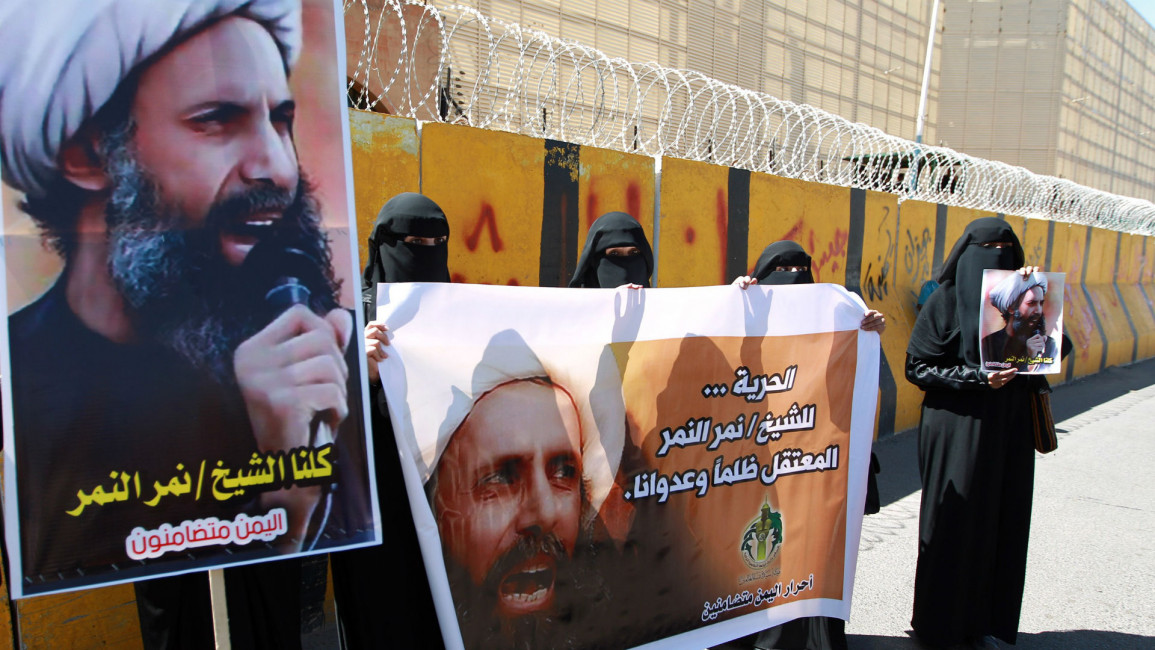Saudi executes 47 including top Shia cleric
Saudi Arabia executed 47 people on Saturday, including a prominent Shia cleric behind anti-government protests and Sunnis convicted of involvement in deadly Al-Qaeda attacks, the government said.
The 56-year-old cleric, Nimr al-Nimr, was a driving force of the protests that broke out in 2011 in the Sunni-ruled kingdom's east, where the Shia minority complains of marginalisation.
The execution of al-Nimr could arouse anger among the minority's youths, his brother warned, while calling for calm.
"This action will spark the anger of (Shia) youths" in Saudi Arabia, said Mohammed al-Nimr, calling instead for a "peaceful protest movement".
"We reject violence and clashing with authorities, just like the martyr sheikh rejected it."
The list does not include Nimr's nephew, Ali al-Nimr, whose arrest at the age of 17 and alleged torture during detention sparked condemnation from human rights groups and the United States.
Announcing the executions, the Saudi interior ministry said the 47 had been convicted of adopting the radical "takfiri" ideology, joining "terrorist organisations" and implementing various "criminal plots".
The list, published in a statement carried by SPA, the official Saudi news agency, includes Sunnis convicted of involvement in Al-Qaeda attacks that killed Saudis and foreigners in the kingdom in 2003 and 2004.
All of the executed were Saudis, except for an Egyptian and citizen of Chad.
The list includes Fares al-Shuwail which Saudi media outlets have described as the top religious leader of Al-Qaeda in Saudi Arabia. He was arrested in August 2004.
They were executed Saturday in 12 Saudi cities, the ministry said, without elaborating.
Saudi executions are usually carried out by beheading with a sword.
 |
Executions have soared in the country since King Salman acceded the throne in January 2015. |  |
Executions have soared in the country since King Salman acceded the throne in January 2015, after the death of king Abdullah.
Last year, Saudi Arabia executed 153 people convicted of various crimes, including drug-trafficking, after 87 were put to death in 2014.
Authorities in the kingdom set up specialised courts in 2011 to try dozens of Saudis and foreigners accused of belonging to Al-Qaeda or of participating in the wave of attacks that swept the country from 2003.
Those shootings and bombings killed more than 150 Saudis and foreigners.
The kingdom's current Crown Prince Mohammed bin Nayef oversaw a crackdown on the militants at the time.
In 2009, Al-Qaeda announced a merger of its Saudi and Yemeni branches forming Al-Qaeda in the Arabian Peninsula (AQAP) - classified by the United States as the network's deadliest branch.
'Instigator of sedition'
But Nimr was arrested for completely different reasons in 2012.
The interior ministry had described him at the time as an "instigator of sedition" as it announced his arrest in the Shia village of Awamiya in the east after being wounded in the leg while putting up resistance.
A video published on YouTube in 2012 showed Nimr, a slightly built man with a white beard, making a speech celebrating the 2012 death of then-interior minister Prince Nayef bin Abdulaziz, the crown prince's father.
"Let the worms eat him," Nimr said at the time.
"Those who killed our sons and jailed them, how would we not be happy for their deaths... May God take their lives one after the other, the families of Al-Saud and Al-Khalifa," he said in reference to the Sunni ruling families of Saudi Arabia and Bahrain.
Saudi Arabia's Shia-populated east has been the scene of periodic clashes involving security forces after demonstrations broke out almost five years ago alongside a Shia-led protest movement in neighbouring Bahrain.
Most of Saudi Arabia's Shias live in the oil-rich east, where many say they are marginalised.



